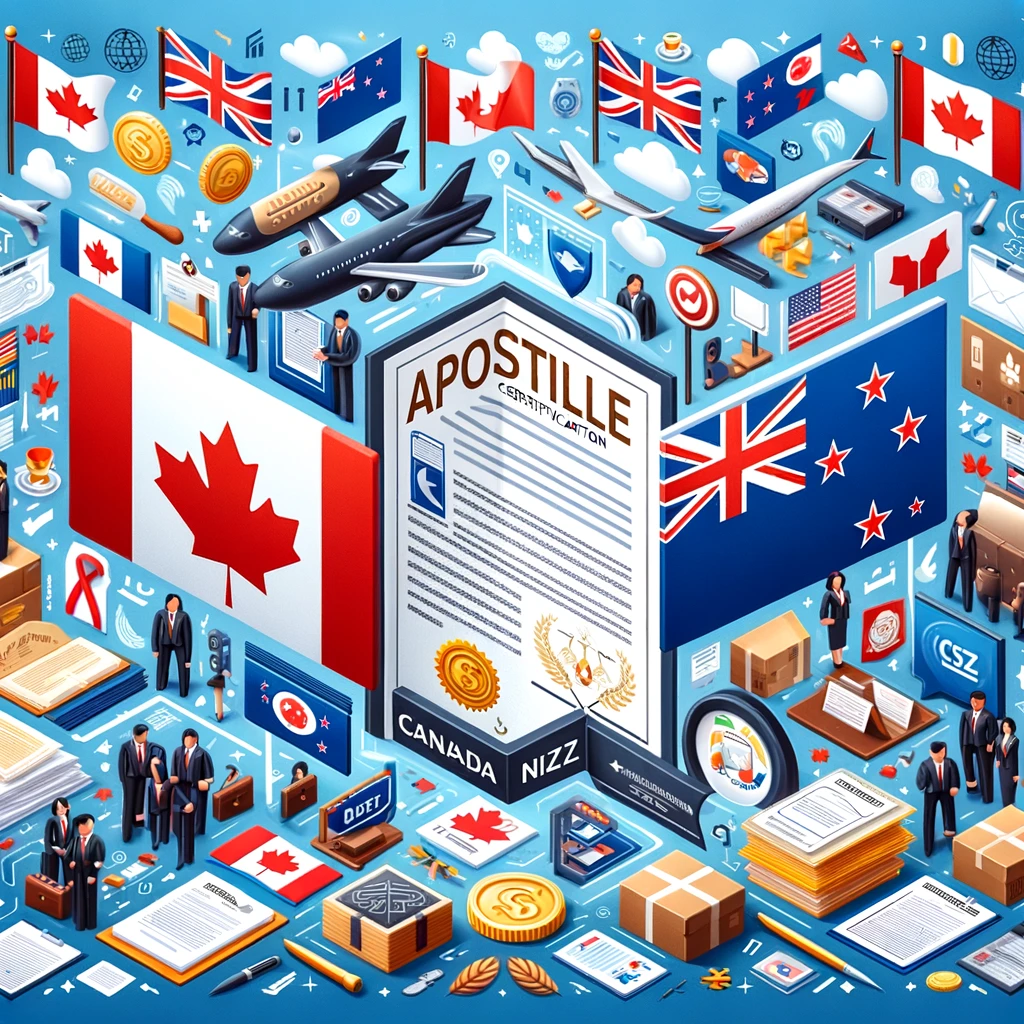Canadian Apostille for use in New Zealand
In an increasingly interconnected world, the ease of document verification across international borders is paramount for individuals and businesses alike. This necessity becomes even more pronounced when engaging in activities that cross the legal and bureaucratic thresholds of different countries. A significant development in this domain is Canada's recent accession to the Hague Apostille Convention, effective January 11, 2024. This development streamlines the process of authenticating documents intended for use in other member countries, notably New Zealand.
Canada Joins the Hague Apostille Convention
The Hague Apostille Convention simplifies the legalization process of documents to be used in countries that are part of the agreement. With Canada's entry into this convention, individuals and businesses will no longer need to go through the cumbersome process of multiple authentications for their documents to be recognized in New Zealand. Instead, an Apostille from Global Affairs Canada or a provincial competent authority—such as those in Alberta, British Columbia, Ontario, Quebec, or Saskatchewan—will suffice, depending on where the document was issued and its nature.
The Need for an Apostille for New Zealand
The reasons for needing an Apostille for documents intended for use in New Zealand are varied and encompass several areas including business, work, immigration, family matters, and marriage. Here’s a closer look at each:
- Business: Entrepreneurs and companies engaging in international trade, establishing subsidiaries, or entering into contracts in New Zealand require authenticated documents to comply with local regulations.
- Work: Individuals seeking employment in New Zealand may need to apostille their academic records, qualifications, and police clearances.
- Immigration: For those immigrating to New Zealand, documents such as birth certificates, marriage certificates, and medical records need authentication.
- Family Matters: Legal documents related to adoption, divorce, custody, or inheritance issues must be recognized internationally.
- Marriage: Couples planning to marry in New Zealand must ensure their documents, like birth certificates and single status affidavits, are properly authenticated.
Types of Documents Requiring Apostille
A broad spectrum of documents can be apostilled for use in New Zealand, including but not limited to:
- Personal documents: Birth certificates, marriage certificates, death certificates
- Educational documents: Degrees, diplomas, transcripts
- Legal documents: Court orders, powers of attorney, wills
- Corporate documents: Articles of incorporation, financial statements, patents
Why Choose Global Document Solutions?
Global Document Solutions stands as a beacon of reliability and expertise in navigating the complexities of document authentication for over three decades. Here are compelling reasons to choose us for your Apostille needs:
- Experience: Our extensive experience ensures a deep understanding of the Apostille process and the specific requirements of various countries.
- Efficiency: We streamline the process, saving you time and hassle in preparing your documents for international use.
- Expertise: Our team stays abreast of the latest regulations and procedures, providing you with accurate and timely advice.
- Global Network: Our established relationships with authorities and agencies worldwide expedite the authentication process.
- Customer Service: Our commitment to excellence is reflected in our personalized customer service, guiding you at every step.
With Canada's accession to the Hague Apostille Convention, the process of authenticating documents for use in New Zealand has been significantly simplified. Whether for business, work, immigration, family matters, or marriage, the need for an Apostille is undeniable. Global Document Solutions, with its unmatched experience and dedication, is ideally positioned to assist individuals and businesses in seamlessly navigating this process, ensuring your documents are authenticated efficiently and correctly for use in New Zealand.


